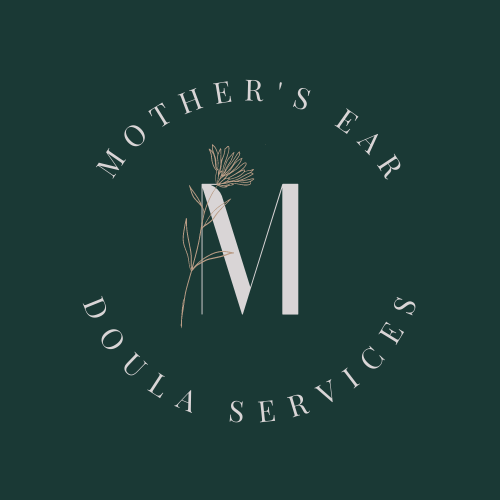From Homebirth Plans to Hospital Birth with a Gastroschisis Diagnosis
When you first saw those two pink lines, what was your reaction? Were you over the moon, or did you feel a knot of anxiety forming in your stomach? For many, the discovery of a pregnancy is met with a mixture of excitement and fear. But what happens when that fear takes over? What happens when you realize that the standard path of care isn’t right for you, but you don’t know where to turn? Are you just going with the flow, trusting that the system knows what’s best for you and your baby? Or are you tentatively researching, trying to find a way to take control of your experience, even if you’re not quite sure where to start?
My journey began with uncertainty and fear. I wasn’t jumping with joy when I found out I was pregnant—I was terrified. My husband and I hadn’t talked about having children in years, and I was left grappling with my deep-seated medical phobia. The idea of navigating OB care was unbearable to me, but homebirth seemed out of reach financially. For weeks, I wrestled with the decision of where to seek care. I knew what I didn’t want: the impersonal, often invasive care I had seen too many others endure. Yet, the idea of a homebirth seemed financially out of reach.
Weeks passed as I wrestled with these decisions, stuck in a limbo of uncertainty. I eventually sought guidance from a local pregnancy center, but the support there was limited. I felt adrift, unsure of where to turn. Then, I discovered Atlanta Birth Center. It was like a beacon of hope. I attended their orientation at 18 weeks—much later in pregnancy than most—but it felt like I had finally found a place that understood my desire for a more holistic, supportive approach to birth. But that relief was short-lived.
The center advised me to get bloodwork done by an OB, and my experience there was a nightmare. The moment I mentioned that I wanted my results sent to the birth center, the staff’s demeanor shifted. They were cold, dismissive, and made it clear they didn’t support my decision. I was pressured into an unnecessary pelvic exam, a traumatic experience that left me shaking in fear.
Then came the devastating news: during the ultrasound, the technician fell silent, her demeanor changing from friendly and professional to somber. I was told that my baby had either gastroschisis or omphalocele, a diagnosis that meant I would likely need a cesarean (this was not true). The rest of the appointment was a blur. I remember collapsing against the side of our car afterward, calling my mom in a panic, desperate for comfort and guidance.
The weeks that followed were a series of painful encounters with the medical system. I was assaulted by a male provider I had explicitly asked not to see, my autonomy stripped away as I was bullied into procedures I didn’t want. A receptionist and nurse manager brought me to tears, mocking my requests to avoid further pelvic exams due to a paperwork error. My mental health deteriorated as I tried to navigate this hostile environment, feeling more like an object than a person.
It wasn’t until I was 26 weeks pregnant that I found an OB who respected me as a person, even if it meant driving two hours across Atlanta for appointments. This doctor, along with a compassionate Maternal Fetal Medicine specialist, offered the support I so desperately needed. I still felt shrouded in darkness and uncertainty.
In that darkness, I found a light: Kyleigh Banks, also known as The Autonomy Mommy. Her resources and encouragement helped me take control of my experience, turning me from a passive patient into an active advocate for myself and my baby. I dove into research, learned everything I could about my son’s condition, and prepared myself for every possible scenario.
I took a childbirth education course and became my own advocate, ensuring that nothing was overlooked in my care. Despite the pressure to induce labor early or opt for a cesarean, I fought for my right to make informed decisions about my body and my baby’s birth.
When the day finally came, I labored on my own terms. I was pressured to accept an epidural due to my asthma, and although it failed, I managed to push through. I insisted on a supported squat position, despite the nurse’s attempts to force me onto my back. And when my son was born, I held him in my arms, even though they had told me it wouldn’t be possible. It wasn’t the birth I had envisioned, but it was mine. I reclaimed my autonomy at that moment, and it changed everything.
After my son’s birth, he was transferred to Children’s of Atlanta, an hour away from where I delivered. I left the hospital just 11 hours after giving birth, against the staff’s wishes, because I needed to be with my baby. The entire experience was chaotic and traumatic, and I pushed it all down to focus on my son’s healing and my own. But when we finally came home from the NICU, I was left with a strange emptiness. I had gained so much knowledge about birth and NICU care, but my journey was over. Or so I thought.
Here, I found my calling in birthwork.
It would be easy to end the story there, to focus on the fact that I survived. But that’s not where this journey ends—it’s where it begins. That chaotic, painful experience ignited a passion in me that I never expected. I realized that my story wasn’t just about survival; it was about transformation. I found my calling, driven by the desire to help others navigate the labyrinth of pregnancy and birth with the autonomy and respect they deserve.
So here I am, not just a mother, but a doula, an advocate, a guide for those who walk similar paths. My journey taught me that we don’t have to wait for someone to save us. We can take control of our own stories, rewrite the narrative, and find strength in the most unexpected places.
So, I ask you again: Are you going with the flow, or are you ready to take control of your story? Don’t wait for someone to save you. Don’t let the system decide what’s best for you and your baby. You have the power to advocate for yourself, to research, to question, and to demand the care you deserve. Your journey is your own, and it’s time to take the reins. Don’t let anyone else write your story—take control and create the narrative that’s right for you and your baby. You are stronger than you know, and your voice matters. It’s time to use it.





